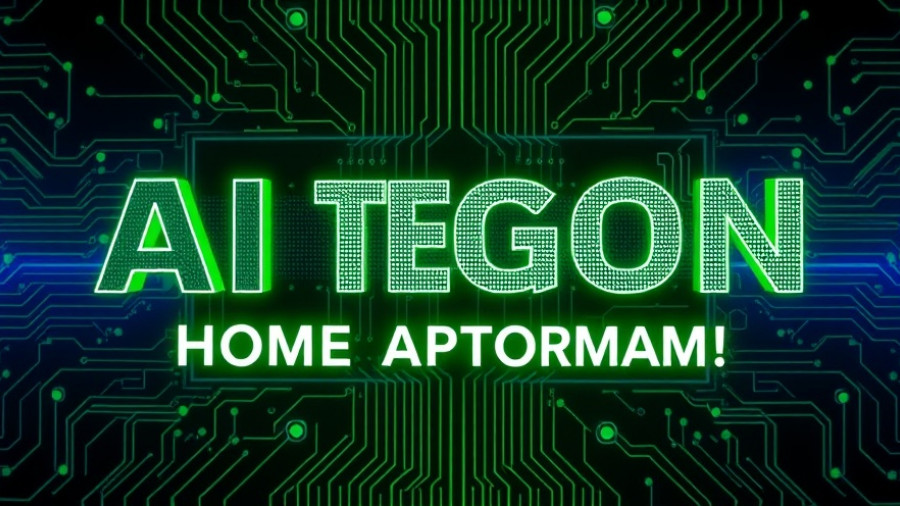
Amazon's Leap into Agentic AI: What It Means for the Future
Amazon is on the brink of a significant transformation in the realm of artificial intelligence, introducing Nova Act, a new agentic AI system that aims to revolutionize how we interact with technology in our homes. While many of us currently use Alexa for simple tasks like setting timers or playing our favorite music, the scope of Nova Act extends far beyond these rudimentary functions. The implications of this upgrade not only promise to enhance convenience but also raise important discussions around privacy and dependence on technology.
In 'Meet Alexa 2.0: Amazon’s New Agentic AI For Your Home', the discussion dives into the transformative potential of Nova Act, exploring key insights that sparked deeper analysis on our end.
Breaking Down Agentic AI: The Rise of Nova Act
Traditional voice assistants have served their purpose, performing basic tasks triggered by user commands. In contrast, agentic AI represents a paradigm shift. Nova Act is designed to independently manage complex tasks across multiple applications. Imagine an AI that can book your travel, coordinate your calendar, and even purchase groceries, all without requiring your direct involvement each step of the way. This level of autonomy is what sets Nova Act apart in the evolving landscape of AI technologies.
Navigating Privacy Concerns with Agentic AI
With increasing capabilities come significant concerns, particularly regarding user privacy. The ability of Nova Act to access personal and sensitive data makes it imperative for Amazon to implement robust security measures and transparency. Consumers will undoubtedly be wary about how their information is handled, especially when the AI handles tasks like booking travel or accessing personal calendars.
Reliability: A Potential Pitfall in AI Integration
The reliability of generative AI systems is already under scrutiny, with cases of "hallucination"—when AI produces unexpected or erroneous outputs. As Nova Act begins to take actions based on its processing, the stakes are high. A faulty transaction or decision could have tangible consequences in the real world, highlighting the need for effective safeguards.
The Philosophical Debate: How Much Should We Rely on AI?
Beyond technical and privacy concerns, the rise of agentic AI provokes deeper philosophical questions. As users, we must consider how much autonomy we are willing to relinquish to technology. If we rely on AI for everyday decision-making, do we risk diminishing our own capabilities in the process? It presents a challenging societal dilemma as we negotiate between convenience and the preservation of our decision-making skills.
What Lies Ahead for AI in Our Homes
Amazon's launch of Nova Act signals that agentic AI is not only a future consideration but a present reality. As this technology makes its way into homes worldwide, it will undoubtedly shape how we live and work, redefining our interactions with technology.
Conclusion: Embracing Change and Caution
As Nova Act begins to roll out, it will be crucial for tech investors, researchers, and startups in the deep-tech space to monitor its development closely. The agentic AI landscape is teeming with opportunities, yet it is essential to navigate the challenges it brings. Consider how this integration of AI can transform your approaches to your work and daily life. Are you prepared for the changes on the horizon?
 Add Row
Add Row  Add
Add 




Write A Comment